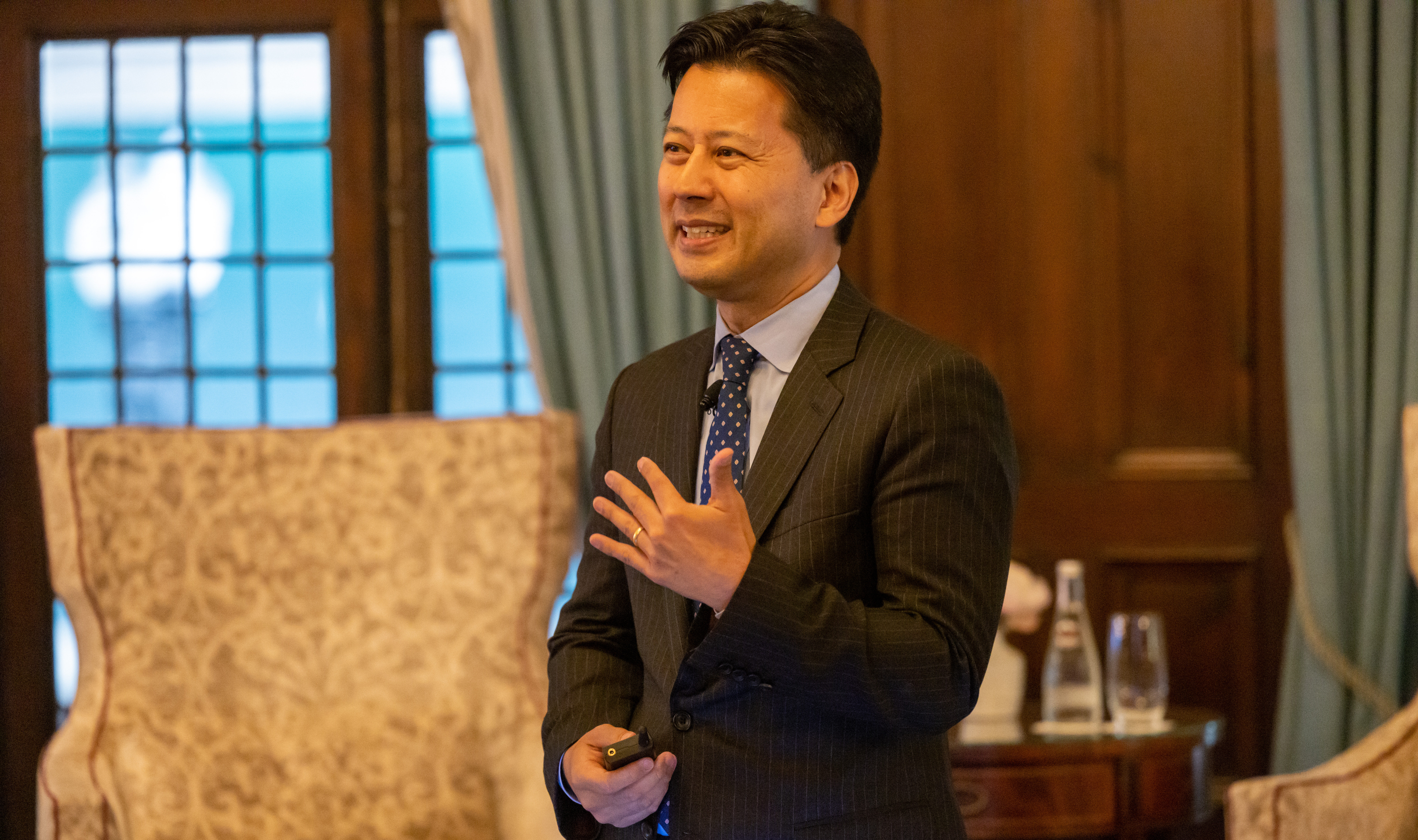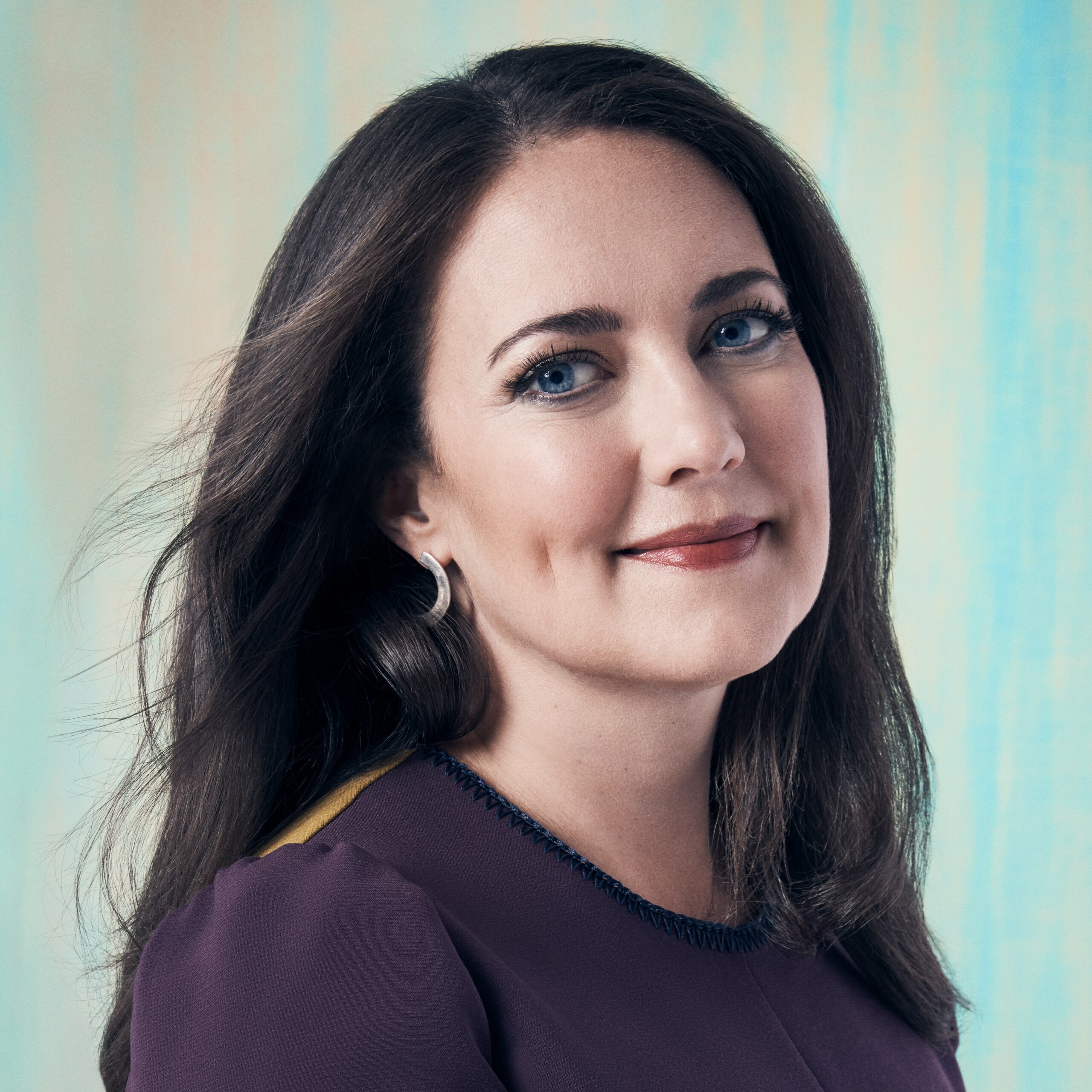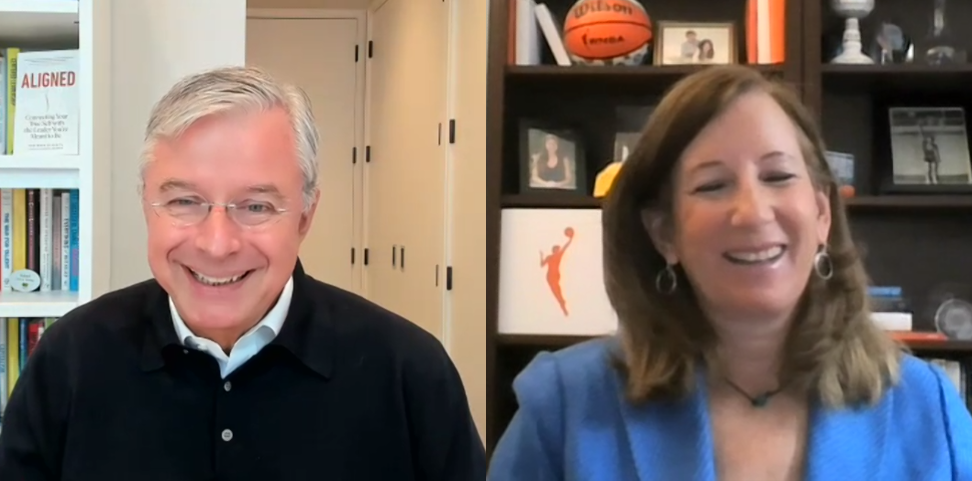
A Panel Discussion hosted by Corporate Leadership Center
What are the most critical challenges leaders face after the fracturing events of 2020?
How can we make our people feel more included and supported as COVID and other challenges continue?
How can top executives and other leaders choose among the wide range of options to do right by their broad set of stakeholders?
On January 28, 2021, Corporate Leadership Center held an informative, panel-based webinar to address these and other urgent questions around ‘Repairing the Stress Fractures of 2020’.
Ken Porrello, CEO Perspectives’ Executive Director, welcomed the virtual audience of members from the CEO Perspectives and Leading Women Executives communities, and introduced Corporate Leadership Center CEO Deb DeHaas, who joined the organization in November 2020. Deb introduced the panelists and served as discussion moderator.

The panelists included: Christa Davies, Chief Financial Officer & Executive Vice President, Global Finance at Aon; CEO Perspectives Fellow, 2012, and Leading Women Executives Advocate; Daniel Diermeier, Chancellor of Vanderbilt University and longtime CEO Perspectives faculty member and academic advisor; and Marc Howze, Group President of Lifecycle Solutions, Chief Administrative Officer of Deere & Company and CEO Perspectives Fellow, 2019.
Key takeaways from the panel discussion include:
The Stresses Which Emerged In 2020 Have Deep Roots
The ongoing COVID crisis, U.S. Capitol attack of January 6th, and social media-fueled global polarization represent the convergence of deeper forces that require a higher level of commitment and solutions from leaders of business and society.
Technological progress and globalization have created tremendous prosperity worldwide, while leaving large population segments behind — as much as 40% of the U.S. — and highlighting chronic social injustice. That has promoted anti-institutional sentiment and action, layered on top of cultural and ideological differences (e.g., urban versus rural, conservative versus liberal, etc.), resulting in outcomes such as the Brexit vote and hard-fought U.S. presidential election and aftermath. Edelman’s Trust Barometer reports an overall lack of trust among citizens in media, government, and other institutions. Moreover, the pandemic has increased social isolation and disconnects.
Consequently, leaders across sectors must: be more intentional in driving inclusive growth and wealth creation; reinforce fundamental institutions and values; step up to lead in areas they may have avoided before (such as social justice); and act with empathy to promote greater belonging across groups.
Leaders across sectors must: be more intentional in driving inclusive growth and wealth creation; reinforce fundamental institutions and values; step up to lead in areas they may have avoided before (such as social justice); and act with empathy to promote greater belonging across groups.
For example, Vanderbilt University recently started the Unity in American Democracy initiative led by professor and historian Jon Meacham, to identify and highlight shared values and combat disinformation. On the business front, Aon, which is in the process of merging with Willis Towers Watson, is using large-scale technology solutions to connect its 90,000 remote employees across 120 countries, promoting client service, as well as workforce flexibility and inclusion.
It’s About Inclusion and Authenticity
Faced with mounting social challenges, today’s leaders and organizations must aim for inclusion, authenticity, and support.
Aon, for example, has harnessed virtual settings to offer more inclusive decision-making committees and management forums during the pandemic. Leadership has guided use of technology-enabled tools to address employee challenges ranging from mental health to at-home schooling, to provide support while maintaining productivity.
Work-from-home arrangements provide opportunity for authentic engagement and better work/life integration. Employees with disabilities or in remote locations can participate more fully, for example. Through video calls, people also have a direct, unprecedented window into diverse colleagues’ lives, including their families and pets. At Deere meetings, for example, top leaders have taken breaks to say hello to visiting children. Expectations for attire and work hours are more relaxed now, creating a greater sense of equality.
Leaders need to consider what is best for frontline workers, such as warehouse- or factory-based employees or custodial staff. For these constituents, promoting safety through social distancing and other measures is a top priority. Deere, for instance, took several steps to ensure employee safety, such as changes to its manufacturing lines to reduce the density of workers and ensure better provision of protective equipment and sanitizer. Deere also paid employees not to come to work if they were in any way symptomatic.
In short, don’t take things for granted. We can all do our part to promote inclusion, authenticity, and safety. A focus on universal values, such as prosperity for all, can help.
We can all do our part to promote inclusion, authenticity, and safety. A focus on universal values, such as prosperity for all, can help.
Broaden Your Impact, Within Limits
People expect more from companies than ever before — beyond shareholder value creation. That is partly due to global public-sector dysfunction, but also due to business’s demonstrated impact.
Expectations of companies have also intensified because of the long-overdue attention to social injustice, fueled by the killing of George Floyd and other Black citizens. Leaders have had to understand what that means for employees and other stakeholders who live in those communities and think about their business’s obligations to affected segments — beyond a simple statement of support on the company website. So, it is no surprise we have seen CEOs and other leaders speak out on everything from Black Lives Matter to gun control to immigration policy.
More broadly, focus on ESG — environment, social, governance issues — is now front and center for leaders and of critical importance to shareholders and investors. Vanderbilt University, for example, co-invested with Tennessee Valley Authority on a solar farm that cut carbon 33% overnight.
Focus on ESG — environment, social, governance issues — is now front and center for leaders and of critical importance to shareholders and investors.
This can be challenging terrain. Resist the temptation to speak out on every issue or seek equal impact across ESG domains. Use your core mission, purpose, and values as your North Star, and remember that you are serving multiple constituencies with divergent, often polarized viewpoints; in some cases, that means providing a neutral platform for dialogue, rather than embracing a specific point of view. Guardrails are a good thing.
Tie Doing Good To the Core — And Shift Mindsets As Necessary
Positive impact can and should be linked to your core business.
Aon, for example, started the Chicago Apprentice Network program in 2017. The program initially included training of 25 apprentices — those who could be brought into employee roles without college degrees —as part of the business’s shifting approach to talent. In 2021, Aon is expecting to have 100 apprentices in seven U.S. metropolitan areas, with 75% of participants from Black and Latinx communities. Participants are among the company’s highest-performing, most loyal employees, thriving in a range of roles. The program has been extended worldwide, creating large opportunity for underserved groups and a talent advantage for Aon.
Similarly, Deere leveraged its core to promote fairness for Black farmers and landowners, to combat a century-plus of involuntary land loss, insufficient capital, and other challenges. The company created a coalition to address the issue of “Heir Property” to help black farmers obtain clear title to land they have owned for generations and unlock the economic value of their property.
In the higher-education domain, the University of Chicago took an innovative approach to attracting more diverse applicants — who often don’t apply. The university created a program focused on Latinx high-school juniors, translating all materials into Spanish for parents and bringing high-potential students to campus for an immersive two-week program. The result: A significant increase in the number of Latinx applicants and students.
In such cases, it’s largely about shifting stakeholders’ mindsets to be more open. For example, Aon leadership was able to shift to a more integrative mindset about employee qualifications, driving the apprentice program’s success.
It’s largely about shifting stakeholders’ mindsets to be more open.
Think Global
2020 brought large changes on the global stage, with significant implications for leaders.
Some fractures have had hidden benefits. Brexit, for example, meant a faster pace of COVID vaccine purchase and rollout for UK citizens than for the EU more broadly, with over 7 million vaccinated at the time of this writing.
At the same time, uniting far-flung stakeholders within a global organization has been challenging, especially during the pandemic, given the heterogeneity of healthcare and government policies across nations. Aon, which operates in 120 countries, faced this complexity head-on, grappling with issues such as which offices to keep open, by developing a multifactor decision-making framework.
Challenges remain, going forward. Aon employees, for instance, have divergent, often culture-based preferences about returning to the office post-COVID. Most employees from countries in Asia are eager to return, whereas 90%+ of U.S. and U.K. workers do not want to be there full-time. This will require a flexible approach to maximize productivity and morale and avoid creation of “haves and have-nots.”
Inter-country tensions represent additional concerns, with growing nationalism and anti-outsider sentiment rising. Deere’s leadership, for example, works to unite employees across disparate regions by emphasizing alignment with their mission, and how the business has existed for over 180 years, through countless presidential administrations and sociopolitical shifts — as part of a “one company” mentality.
Do Good Business
As much as business today is about doing good for the broader community, the most critical goal remains to do good business.
As much as business today is about doing good for the broader community, the most critical goal remains to do good business.
To have an ongoing voice and promote social and environmental sustainability, we need to maintain a strong, viable business. If we don’t have that, nothing else matters. If we do, we can harness the business’s success, platform, and resources for impact beyond shareholder value, in the areas representing the greatest need.
***
Organizations across sectors can and should have broad impact in these fracturing times but must work toward this thoughtfully and strategically. The ability to drive large, needed change is a privilege, and with that privilege comes responsibility to face the challenges ahead with courage and conviction.
Written by Sachin Waikar

